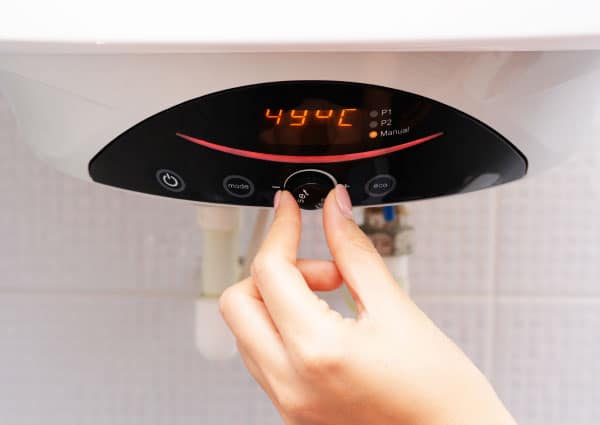We have stumbled on the article on Common Hot Water Heater Problems directly below on the internet and believe it made sense to discuss it with you in this article.

A water heater is one of one of the most important basic home appliances that can be located in a residence. With hot water heater, you don't need to experience the stress of heating water manually whenever there is a demand to wash, do the laundry, or the dishes. There is constantly a possibility that your water heating unit would act up as with a lot of mechanical devices.
It is very important to note any little breakdown and also tackle it swiftly before things get out of hand. The majority of times, your hot water heater starts to malfunction when there is an accumulation of debris as a result of continuous usage. As a safety measure, periodic flushing of your hot water heater is suggested to prevent debris buildup as well as prevent practical failing.
Typical hot water heater emergencies as well as how to take care of them
Too little hot water
Managing an insufficient supply of warm water can be irritating. It may be that the water heater can't sustain the hot water demand for your home. To deal with this trouble, you could try to adjust your heating unit's temperature level dial and wait for a few minutes. You can ask for the help of a professional plumber if the problem lingers. Conversely, you can upgrade your water heater to one with a larger capacity.
Varying water temperature level.
Your water heater could start producing water of different temperatures usually ice cold or scalding warm. There may be a requirement to replace either the heating or the thermostat unit of your water heater.
Leaking water heater container.
In this scenario, you must turn off your water heating unit, allow it to cool down, and carefully look for the resource of the issue. At times, all you need to do is to tighten up a couple of screws or pipe links in situations of minor leaks. If this doesn't function as well as the leak lingers, you may need to employ the solutions of a professional for an appropriate substitute.
Blemished or smelly water
When this happens, you need to understand if the concern is from the storage tank or the water source. If there is no amusing scent when you run chilly water, after that you are certain that it is your water heating unit that is damaged. The stinky water can be triggered by rust or the build-up of germs or sediments in the water heating system storage tank.
Verdict
Some homeowners disregard little warning as well as minor faults in their water heater device. This only brings about additional damage and also a possible full malfunction of your home appliance. You need to handle your hot water heater faults as soon as they come up to avoid even more expenses and also unneeded emergency troubles.
With water heating systems, you do not need to go through the stress of home heating water manually every time there is a need to take a bathroom, do the laundry, or the recipes. It may be that the water heating system can't sustain the warm water demand for your apartment. Your water heating system could begin producing water of various temperatures normally ice hot or cold hot. If there is no amusing smell when you run chilly water, after that you are particular that it is your water heater that is malfunctioning. The odiferous water can be caused by rust or the build-up of microorganisms or debris in the water heater tank.
Common Water Heater Issues and What You Should Do
What Type of Water Heater Do You Have?
Before we begin it’s first important that you identify the type of water heater you have on your property. There are two main types of water heaters out there: conventional and high efficiency.
Both of these types of products typically use either gas or electricity to heat power. There are also solar water heaters that use a thermal collector on the roof or yard to heat the water.
While these models are not as common, they can cut heating costs in half. In this article, we will focus on conventional and high efficiency.
How Do My Electric and Gas Water Heater Work?
Though they look similar, electric and gas water heaters work very differently. It’s important to know their basic function because often problems can be specific to the heating source.
In the electric model, a thermostat on the side of the machine detects the temperature of the water in the tank. When the temperature needs to rise electricity flows to a heating element suspended in the water.
Gas models also use a thermostat device — typically with a mercury sensor at the tip and an additional sensor called a thermocouple. The thermocouple detects whether the pilot light is on and controls the flow of gas.
When the thermostat drops below the appropriate level gas is released which becomes ignited by the pilot light. The flame heats the bottom of the water tank which causes hot water to rise and cold water to drop.
This natural circulation continues until the water reaches the desired temperature. Then, the thermostat triggers the gas control valve to shut off the flow of gas.
What Are the Most Common Issues and How Do You Fix Them?
https://happyhiller.com/blog/common-water-heater-issues-and-what-you-should-do/

We hope you enjoyed our part on Warning Signs You Need Water Heater Repairs. Thanks a lot for finding the time to browse our post. Are you aware of another individual who is inquisitive about the niche? Be sure share it. We take joy in reading our article about Is Your Water Heater Leaking?.
Plumbing woes? We help.